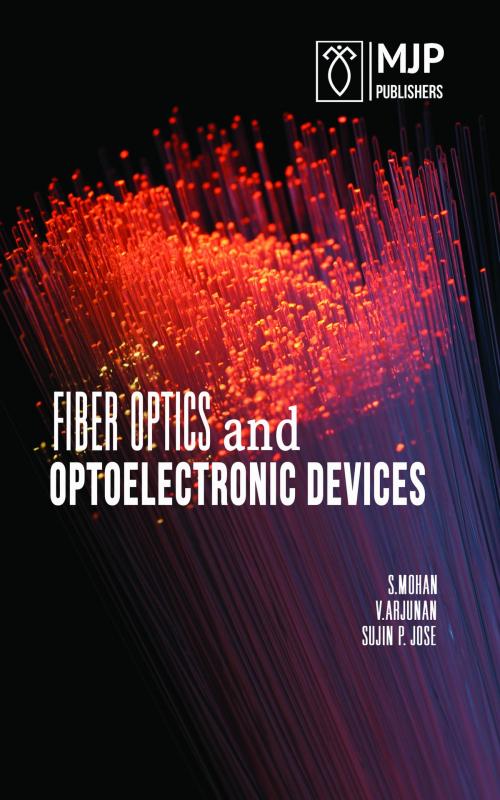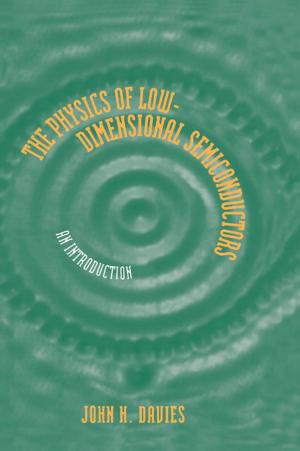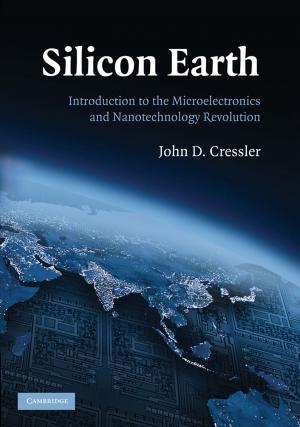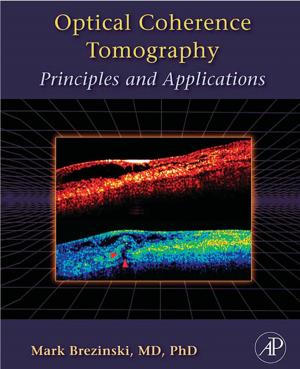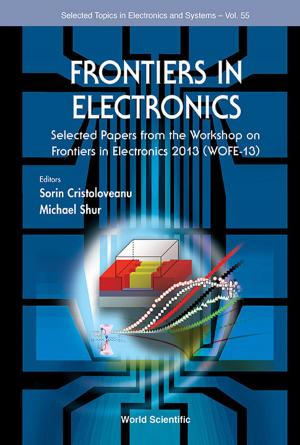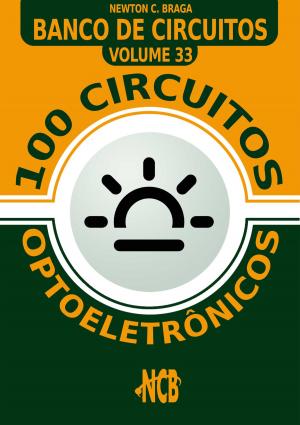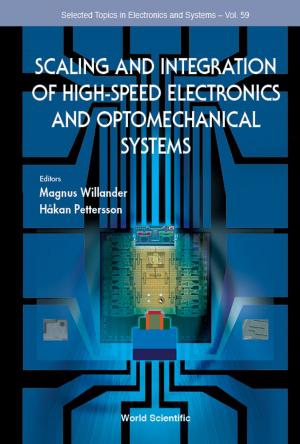Fiber Optics and Optoelectronic Devices
Nonfiction, Science & Nature, Technology, Electronics, Optoelectronics| Author: | S Mohan, V Arjunan, Sujin.p Jose | ISBN: | 9788180942532 |
| Publisher: | MJP Publishers | Publication: | December 26, 2014 |
| Imprint: | Smashwords Edition | Language: | English |
| Author: | S Mohan, V Arjunan, Sujin.p Jose |
| ISBN: | 9788180942532 |
| Publisher: | MJP Publishers |
| Publication: | December 26, 2014 |
| Imprint: | Smashwords Edition |
| Language: | English |
Fiber optics or optical fibers are long, thin strands of very pure glass about the diameter of a human hair. They are very popular for many applications due to their special features such as unlimited bandwidth to transmit information, low loss, immunity to interferences and galvanic isolation. Optical communication is the current era in which optical fibers play an important role. Fiber optic cables find many uses in a wide variety of industries and applications. Fiber is laid and used for transmitting and receiving purposes in telecommunications. They are used for data transmission, in data storage, and to connect users and servers in a variety of network. They help to increase the speed and accuracy of data transmission. Broadcast/cable companies are using fiber optic cables for wiring CATV, HDTV, internet, video on-demand and other applications. Fiber optic cables are used for lighting and imaging and as sensors to measure and monitor a vast array of parameters. Fiber optic cables are also used in research and development and testing across the industries and research laboratories. The field of optical fiber sensors has advanced substantially in the last decade. A fiber-optic sensor system consists of a fiber-optic cable connected to a remote sensor or amplifier. The sensor emits, receives, and converts the light energy into an electrical signal. Fiber optic sensors are widely used in industry and in medical applications. They are used as light guides and imaging tools in medical field.
This book deals with the fundamentals of light, fibers and fiber optics along with various types of fibers, lasers including the recent advances in lasers. Since optical communications is the current interest of this century, optical sources, detectors, optoelectronic modulators, optical amplifiers, fiber optic network components and optoelectronic integrated circuits are discussed extensively in this book. Further, a chapter is fully devoted in this book on applications of optical fibers which include many fiber optic sensors, and new fibers in medical field.
The book will be useful to university and college students, teachers, engineers, doctors and common man as the fiber optic applications are expanding very rapidly due to several multibenefits.
Fiber optics or optical fibers are long, thin strands of very pure glass about the diameter of a human hair. They are very popular for many applications due to their special features such as unlimited bandwidth to transmit information, low loss, immunity to interferences and galvanic isolation. Optical communication is the current era in which optical fibers play an important role. Fiber optic cables find many uses in a wide variety of industries and applications. Fiber is laid and used for transmitting and receiving purposes in telecommunications. They are used for data transmission, in data storage, and to connect users and servers in a variety of network. They help to increase the speed and accuracy of data transmission. Broadcast/cable companies are using fiber optic cables for wiring CATV, HDTV, internet, video on-demand and other applications. Fiber optic cables are used for lighting and imaging and as sensors to measure and monitor a vast array of parameters. Fiber optic cables are also used in research and development and testing across the industries and research laboratories. The field of optical fiber sensors has advanced substantially in the last decade. A fiber-optic sensor system consists of a fiber-optic cable connected to a remote sensor or amplifier. The sensor emits, receives, and converts the light energy into an electrical signal. Fiber optic sensors are widely used in industry and in medical applications. They are used as light guides and imaging tools in medical field.
This book deals with the fundamentals of light, fibers and fiber optics along with various types of fibers, lasers including the recent advances in lasers. Since optical communications is the current interest of this century, optical sources, detectors, optoelectronic modulators, optical amplifiers, fiber optic network components and optoelectronic integrated circuits are discussed extensively in this book. Further, a chapter is fully devoted in this book on applications of optical fibers which include many fiber optic sensors, and new fibers in medical field.
The book will be useful to university and college students, teachers, engineers, doctors and common man as the fiber optic applications are expanding very rapidly due to several multibenefits.
